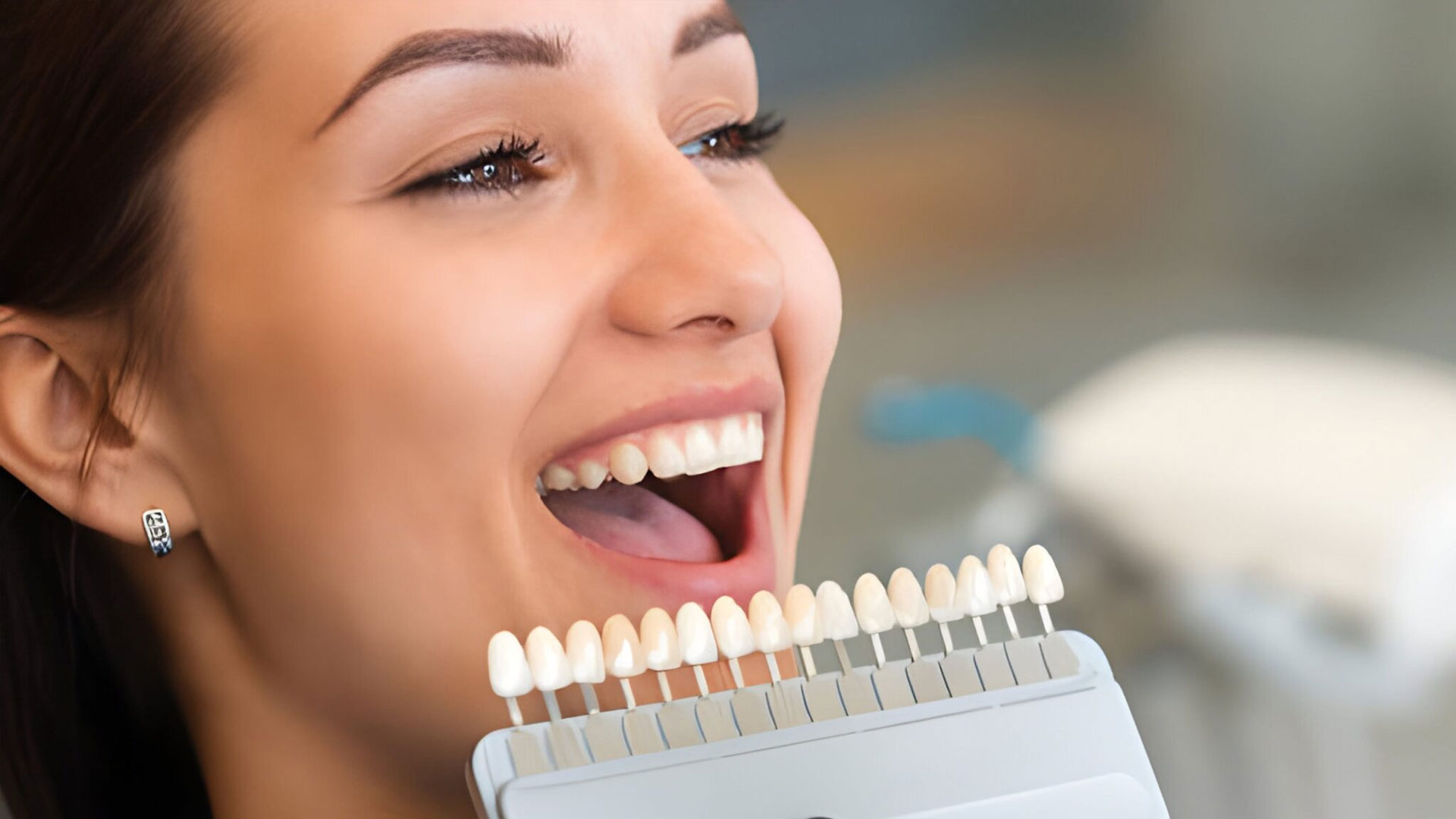Dental veneers are thin pieces of tooth-colored porcelain cemented to the front surfaces of your natural teeth and are an easy way to address a variety of physical and aesthetic problems.
Years of drinking coffee, smoking cigarettes or eating highly pigmented foods eventually take their toll on your teeth, turning them an unattractive shade of yellow or brown. Stained enamel can be bleached at home or by your dentist, but it can become stained again. If you’re looking for an easier way to whiten your smile for good, dental veneers may be a good fit for you. Veneers are largely stain-resistant, according to the National Institutes of Health (NIH), so you won’t have to worry about discoloration or needing to have your veneers whitened.
Fix Minor Cosmetic Problems
Slightly crooked or gapped teeth can be treated with braces or other orthodontic treatments, but according to Dentistry Today, these problems can sometimes be helped with veneers as well. Veneers are attached to the front surfaces of your teeth – so although they don’t change their positions, they do camouflage minor orthodontic problems once they’re applied. Your natural teeth may still be gapped or crooked, but nobody will know aside from you and your dentist.
It’s important to note that veneers can’t always replace orthodontic treatment, and your dentist may refer you to an orthodontist instead of placing veneers.
Replace Damaged Enamel
Enamel is strong, but not indestructible. Your enamel may still be worn down from overzealous tooth brushing or eaten away by highly acidic foods and drinks. The stomach acid associated with acid reflux disease can also damage your enamel. This can become a cause for concern because lost enamel doesn’t grow back. Fortunately, it can be replaced. Veneers are an excellent treatment for teeth with enamel abrasion or enamel erosion, according to the American Academy of Cosmetic Dentistry and are aesthetically pleasing at the same time.
Videos On Veneers


Most popular and trending Veneer Questions?
The quick and simple answer is: No. Under normal circumstances, teeth should not rot under veneers. As long as your veneers are properly applied and maintained, your natural teeth are well protected. Unfortunately, it’s not uncommon for inexperienced or uncaring dentists to apply veneers improperly.
What is the impact on underlying teeth? Aside from this removal of part of the enamel, properly fitted and bonded veneers have no impact on the supporting teeth. The majority of clients won’t experience any of the issues or horror stories they’ve heard – such as bad smells or rotting of the natural teeth.
After 10 years, you may notice more noticeable wear and changes in the appearance of your veneers. This can include slight discoloration, chipping, or minor wear at the edges. Maintenance and possible replacement may be discussed with your dentist.
